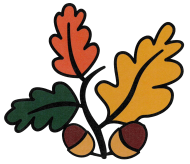“Growing Minds, Kind Hearts, Rooted in Love”

Our Curriculum
Subject Areas – History Vision
Note: For 2024-25 we are currently on Year B

Intent
At Worlingham CEVC Primary School our intent for the History curriculum is to inspire a passion for the past while fostering critical thinking skills in our students. We aim to provide a rich and engaging historical education that equips pupils with a comprehensive understanding of Britain’s history and its global context, encouraging them to explore, question, and reflect on historical narratives. Our curriculum is designed to:
- Develop Historical Skills and knowledge: Equip students with essential skills such as enquiry, analysis, interpretation, and evaluation. This enables them to engage critically with historical sources and understand multiple perspectives. Use the skills within the appropriate knowledge.
- Foster Cultural Awareness: Instill an appreciation for local, national, and world history, highlighting the multicultural nature of society and the importance of inclusivity and diversity in historical narratives. For example, our Benin Unit.
- Encourage Personal Connections: Promote personal connections to history by linking historical content to students’ lives, communities, and the development of their identities, helping them to become reflective global citizens. This links with our Geography intent.
- Ensure Knowledge Retention: Provide a well-sequenced curriculum that enables students to make connections over time, reinforcing knowledge and understanding through a coherent spiral of learning. For example, exploring the theme of invasion from Vikings to the Battle of Britain.
Implementation
The implementation of our History curriculum is implemented by high-quality teaching that engages learners and promotes an active pursuit of knowledge. Key components include:
- Curriculum Design: Our History curriculum is meticulously planned across year groups, ensuring clear progression from Early Years through to Year 6. Each unit is built on prior knowledge and skills, carefully sequenced to allow students to build depth in their understanding. We use three key areas of learning for each unit.
- Active Learning Opportunities: We employ a range of pedagogical approaches that cater to diverse learning styles. This includes hands-on activities, role play, historical re-enactments, and use of primary and secondary sources. These methods stimulate curiosity and facilitate deeper learning. For example, hiding under tables to re-enact WWII bombing raids.
- Interdisciplinary Links: History is taught in conjunction with other subjects, such as Geography and English, fostering cross-curricular links that enhance students’ overall learning experience and contextual understanding.
- Field Trips and Experts: We enhance our curriculum by organising visits to historical sites and inviting guest speakers, including historians and local community members. These experiences provide authentic contexts for learning, making history relevant and tangible. For example, Stone age enactments on the site and trips in the local community like the Dunwich trip done in Year 5/6.
- Regular Assessment and Feedback: We employ formative assessments through questioning, peer review, and self-assessment strategies to monitor students’ understanding. This ongoing assessment informs our planning and ensures all students are progressing, with tailored support provided where necessary.
Impact
The success of our History curriculum is measured by the depth of knowledge and skills acquired by our students, as well as their enthusiasm for the subject. Our impact is evidenced through:
- Knowledge and Skills Acquisition: Students demonstrate their understanding of historical concepts and chronology, as observed in class discussions, assessments, and presentations. They are able to articulate their ideas coherently and make informed connections between historical events and their relevancy in today’s world.
- Positive Attitudes Towards History: Pupil voice surveys indicate high levels of engagement and interest in History, with many expressing a desire to learn more about historical topics and events. Our curriculum promotes a love for learning that transcends the classroom.
- Cultural Appreciation and Awareness: Students demonstrate an understanding of diverse cultures and histories, developing empathy and respect for others’ perspectives. They appreciate the significance of historical events in shaping contemporary society and exhibit informed attitudes towards current global issues.
- Community Involvement: Parents and the local community actively participate in historical events, exhibitions, and project showcases, reflecting a cohesive partnership that enriches the educational experience and promotes a shared appreciation for history.
- Assessment: Our pupils maximise their achievement in national assessments like SATS
Overall, our History curriculum at Worlingham CEVC Primary School aims for excellence by not only meeting but exceeding the expectations of the Ofsted framework. We are committed to ensuring all students leave primary education with a robust historical foundation and the skills necessary to thrive as informed citizens.

